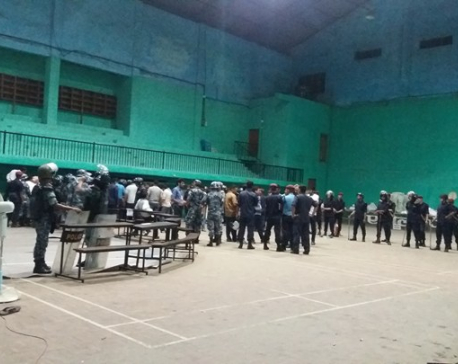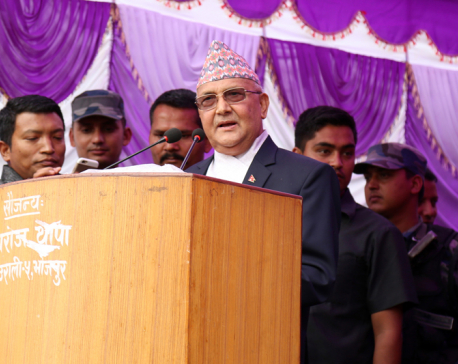
OR
Maoist cadres accused of tearing ballot papers freed on bail
Published On: June 1, 2017 06:18 PM NPT By: Republica | @RepublicaNepal
CHITWAN, June 1: District Court Chitwan today freed two cadres of the CPN (Maoist Centre) who were alleged of tearing the ballot papers last Sunday. They were freed on bail.
The District Police Office Chitwan had arrested Drona Babu Shivakoti and Madhu Neupane reasoning they tore the ballot papers while the vote count of Ward No 19 of Bharatpur Metropolis was going on under the local level election.
A single bench of Judge Basudev Poudel freed them on the bail of Rs 100,000 each during the hearing whether they could be kept in detention for further investigation.
Record keeper at District Court Chitwan Dhani Prasad Chapagain informed that they were demanded action in line with Section 16 (b) of Election Crime and Punishment 2073. RSS
You May Like This

Chitwan Police confirms Maoist Center cadres tore ballot papers
CHITWAN, May 29: Nepal Police SP Deepak Thapa, the chief of Chitwan District Police Office, confirmed that two cadres of... Read More...

Vote count suspended in Bharatpur, UML alleges Maoist Center of tearing ballot papers
CHITWAN, May 29: Vote count in Bharatpur Metropolitan City has been suspended after tension flared in the vote count station... Read More...

Tearing up ballot papers with votes pre-planned: UML Chairman Oli
KATHMANDU, May 30: CPN-UML Chairman KP Sharma Oli on Tuesday claimed the act to tear up ballot papers with votes... Read More...









Just In
- Heavy rainfall likely in Bagmati and Sudurpaschim provinces
- Bangladesh protest leaders taken from hospital by police
- Challenges Confronting the New Coalition
- NRB introduces cautiously flexible measures to address ongoing slowdown in various economic sectors
- Forced Covid-19 cremations: is it too late for redemption?
- NRB to provide collateral-free loans to foreign employment seekers
- NEB to publish Grade 12 results next week
- Body handover begins; Relatives remain dissatisfied with insurance, compensation amount








Leave A Comment